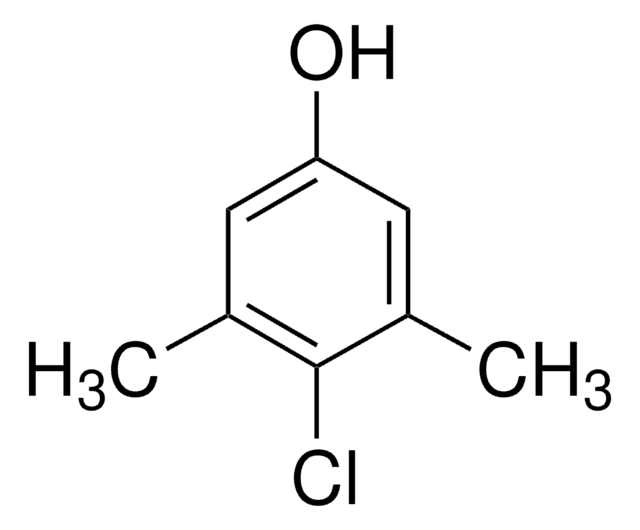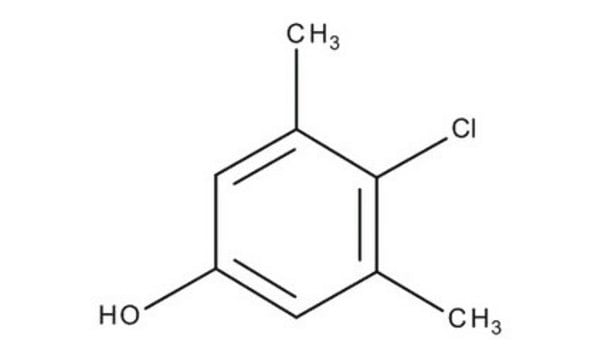24380
4-Chloro-3,5-dimethylphenol
purum, ≥98.0% (T)
Synonym(s):
4-Chloro-3,5-xylenol, 4-Chloro-sym-m-xylenol, PCMX
About This Item
Recommended Products
grade
purum
Quality Level
Assay
≥98.0% (T)
mp
114-116 °C (lit.)
114-116 °C
solubility
methanol: soluble 1 g/10 mL, clear to faintly turbid, colorless to very faintly yellow
SMILES string
Cc1cc(O)cc(C)c1Cl
InChI
1S/C8H9ClO/c1-5-3-7(10)4-6(2)8(5)9/h3-4,10H,1-2H3
InChI key
OSDLLIBGSJNGJE-UHFFFAOYSA-N
Looking for similar products? Visit Product Comparison Guide
General description
Signal Word
Warning
Hazard Statements
Precautionary Statements
Hazard Classifications
Acute Tox. 4 Oral - Eye Irrit. 2 - Skin Irrit. 2 - Skin Sens. 1
Storage Class Code
11 - Combustible Solids
WGK
WGK 1
Personal Protective Equipment
Choose from one of the most recent versions:
Already Own This Product?
Find documentation for the products that you have recently purchased in the Document Library.
Our team of scientists has experience in all areas of research including Life Science, Material Science, Chemical Synthesis, Chromatography, Analytical and many others.
Contact Technical Service







